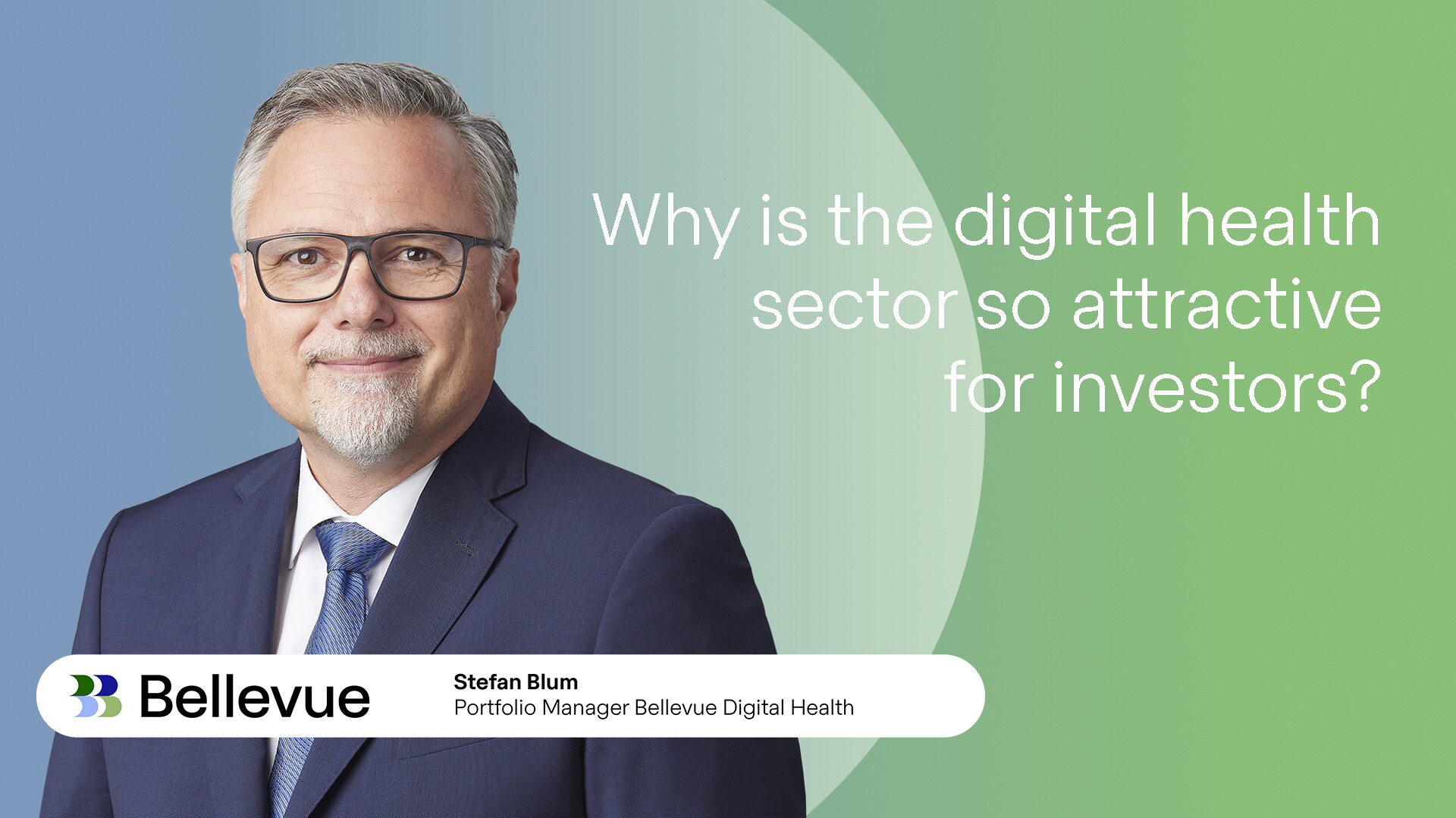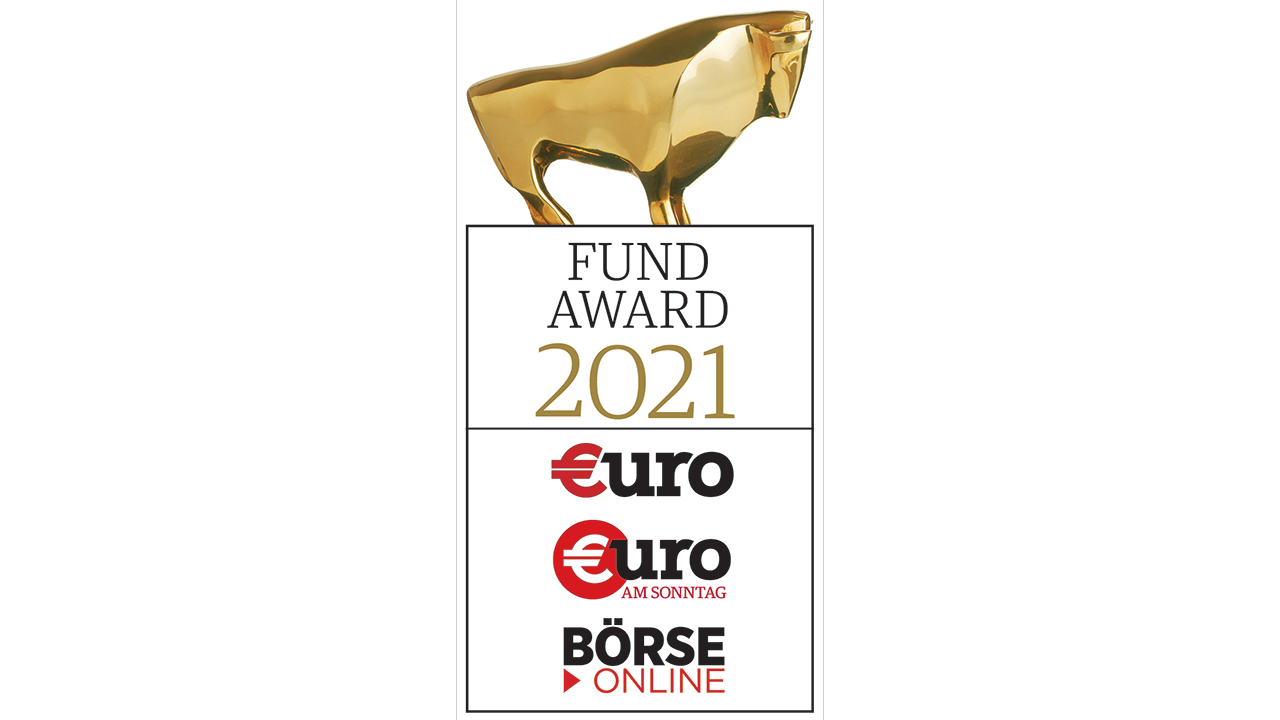Explained in 90 seconds
Portfolio consisting of high-quality growth stocks showing double-digit revenue growth
Regulation and stringent quality requirements limit the technological risk
Demographic changes and an aging general population demand greater efficiency and cost-effectiveness
Indexed performance (as at: 04.03.2026)
NAV: USD 187.90 (03.03.2026)
Rolling performance (04.03.2026)
| I-USD | Benchmark | |
| 03.03.2025 - 03.03.2026 | -2.86% | n.a. |
| 03.03.2024 - 03.03.2025 | 6.47% | n.a. |
| 03.03.2023 - 03.03.2024 | -7.94% | n.a. |
| 03.03.2022 - 03.03.2023 | -6.14% | n.a. |
Annualized performance (04.03.2026)
| I-USD | Benchmark | |
| 1 year | -2.86% | n.a. |
| 3 years | -1.62% | n.a. |
| 5 years | -9.20% | n.a. |
| Since Inception p.a. | 5.33% | n.a. |
Cumulative performance (04.03.2026)
| I-USD | Benchmark | |
| 1M | -1.25% | n.a. |
| YTD | -4.79% | n.a. |
| 1 year | -2.86% | n.a. |
| 3 years | -4.79% | n.a. |
| 5 years | -38.29% | n.a. |
| Since Inception | 50.32% | n.a. |
Annual performance
| I-USD | Benchmark | |
| 2025 | 5.02% | n.a. |
| 2024 | 4.69% | n.a. |
| 2023 | -4.14% | n.a. |
| 2022 | -27.67% | n.a. |
Facts & Key figures
Investment Focus
The fund’s aim is to achieve capital growth in the long term, is actively managed and invests globally at least two-thirds of the portfolio in companies whose business activities have a strong focus on the digitalization of the healthcare sector. Show moreShow less
Investment suitability & Risk
Low risk
High risk
General Information
| Investment Manager | Bellevue Asset Management AG |
| Custodian | CACEIS BANK, LUXEMBOURG BRANCH |
| Fund Administrator | CACEIS BANK, LUXEMBOURG BRANCH |
| Auditor | PriceWaterhouseCoopers |
| Launch date | 30.04.2018 |
| Year end closing | 30. Jun |
| NAV Calculation | Daily "Forward Pricing" |
| Cut of time | 15:00 CET |
| Management Fee | 0.90% |
| Subscription Fee (max.) | 5.00% |
| ISIN number | LU1811047247 |
| Valor number | 41449386 |
| Bloomberg | BBDIGIU LX |
| WKN | A2JJA5 |
Legal Information
| Legal form | Luxembourg UCITS V SICAV |
| SFDR category | Article 8 |
| Redemption period | Daily |
Key data (28.02.2026, base currency USD)
| Beta | 0.68 |
| Volatility | 22.79 |
| Tracking error | 19.42 |
| Correlation | 0.59 |
| Sharpe ratio | -0.11 |
| Information ratio | -1.13 |
| Jensen's alpha | -20.39 |
| No. of positions | 36 |
Portfolio
Top 10 positions
Market capitalization
Geographic breakdown
Benefits & Risks
Benefits
- Demographic changes and an aging general population demand greater efficiency and cost-effectiveness.
- New technologies conquer the healthcare sector.
- Portfolio consisting of high-quality growth stocks showing double-digit revenue growth.
- Regulation and stringent quality requirements limit the technological risk.
- Bellevue – Healthcare pioneer since 1993 and today one of the biggest independent investors in the sector in Europe.
Risks
- The fund actively invests in equities. Equities are subject to price fluctuations and so are also exposed to the risk of price losses.
- The fund invests in foreign currencies, which means a corresponding degree of currency risk against the reference currency.
- The fund may invest a proportion of its assets in financial instruments that might under certain circumstances have a relatively low level of liquidity, which can in turn affect the fund’s liquidity.
- Equities linked to technology and/or digitization can be subject to higher-than-average fluctuations in value.
- The fund may engage in derivatives transactions. The increased opportunities gained come with an increased risk of losses.
Review / Outlook
In January, the broad equity market closed up 2.2%. The healthcare sector (+1.1%) and the medtech sector (-1.9%) were unable to keep pace. One contributing factor was the weak performance of US health insurers (-10.5%) as well as isolated 4Q25 outlooks for 2026 from large-cap medtech companies. The Bellevue Digital Health Fund (-0.9%) delivered a performance between that of the broad healthcare sector and the medtech sector.
During the month under review, 20 of the fund’s 37 portfolio holdings made positive contributions to performance, led by 10X Genomics (+23.5%), Penumbra (+15.2%), TransMedics (+10.1%), Dexcom (+10.0%), ResMed (+7.2%) and Glaukos (+5.7%). At the J.P. Morgan Healthcare Conference in San Francisco, 10X Genomics reported preliminary 4Q25 revenue that clearly exceeded investor expectations. The share price also benefited from positive comments by conference participants regarding a recovery in the life sciences sector and from the company’s strategic focus on expanding from pure research activities into translational and clinical workflows. Penumbra received a takeover offer from Boston Scientific valuing the company at USD 14.5 bn. TransMedics received final approval from the US Food and Drug Administration (FDA) to initiate the clinical trial of its Organ Care System (OCS) product for lung patients, while the trial in heart patients is also expected to receive full approval within the next 30–45 days. The company is currently focused on liver transplants, and penetration of the heart and lung transplant markets could double the addressable market. Dexcom published strong preliminary 4Q25 results that exceeded analyst and investor expectations. The company also confirmed its targets for 2026, which now appear achievable following the strong 4Q25 performance. Glaukos received FDA approval for the re-administration of its iDose product for the treatment of glaucoma. This should simplify treatment decisions involving iDose for many physicians.
Performance was negatively impacted by Beta Bionics (-54.6%), Waystar (-18.9%), Inspire (-17.8%), Intuitive Surgical (-11.0%), Insulet (-10.0%) and Veeva (-8.7%). While Beta Bionics exceeded revenue expectations by 11%, the number of new patients disappointed, prompting the company to expand its sales force over the coming months. As the company has only recently begun commercial product sales, this metric is a key driver of future revenues. The expansion of Anthropic’s AI solution “Claude for Life Sciences” into clinical and regulatory applications weighed on investor sentiment toward Waystar and Veeva. In particular, Anthropic referenced hospital and physician revenue cycle management, Waystar’s core business, as well as the digitalization of workflows in clinical trials, which account for around half of Veeva’s revenues. We view the competitive threat posed by Anthropic’s products to Waystar and Veeva as limited and therefore consider the share price reactions to be exaggerated, given that both companies operate in highly regulated areas that also require very intensive customer support and allow for zero tolerance for errors in operational workflows. Inspire had erroneously received confirmation from the US Centers for Medicare & Medicaid Services (CMS) three months ago regarding an increase in reimbursement for its sleep apnea implant “Inspire V”, which was withdrawn in January. Reimbursement therefore reverts to previous levels, representing a reduction of 30–35%. While Intuitive Surgical exceeded expectations for procedure growth in 4Q25, the upper end of its 2026 outlook for procedure growth (+13–15%) was slightly below the usual range (+13–16%) due to stronger competition in China.
All figures in USD / B shares.
Our discussions with numerous management teams during the J.P. Morgan Healthcare Conference have left us positive on the 2026 financial year. Equity market volatility is currently overshadowing the underlying operating momentum in the digital health sector. From a fundamental perspective, digital health companies remain on a stable path toward above-average growth, which is expected to continue unchanged in 2026. Positive sector dynamics and renewed investor interest in the healthcare sector leave us confident regarding the equity market outlook for 2026. Inflows into the broader healthcare sector should also support the digital health segment.
The approval and launch of relevant new products should continue to drive strong revenue growth. In addition to innovation as the key value driver, factors such as attractive valuation levels and the expected acceleration in M&A activity as well as IPOs support an investment in the Bellevue Digital Health Fund.
Dokumente
Show moreShow less






